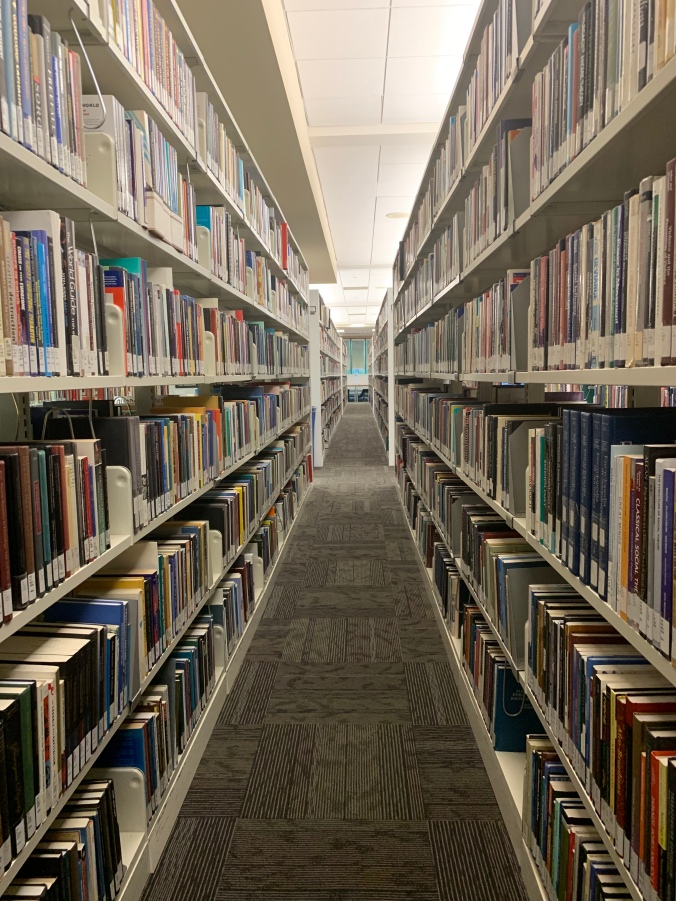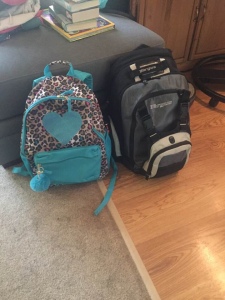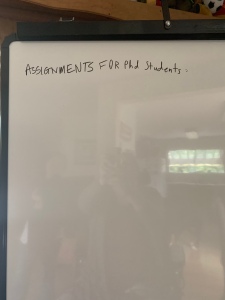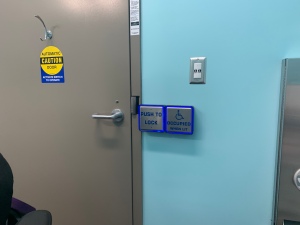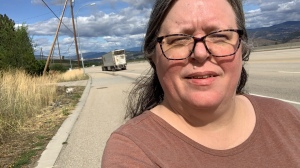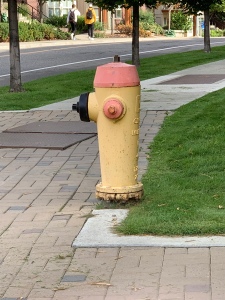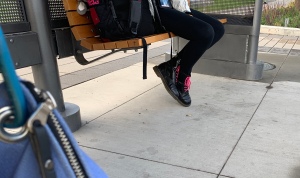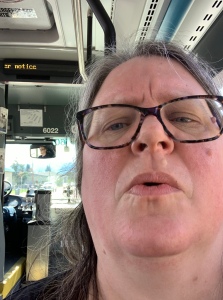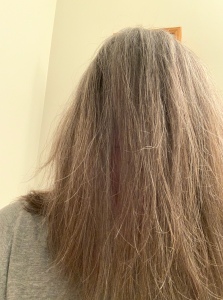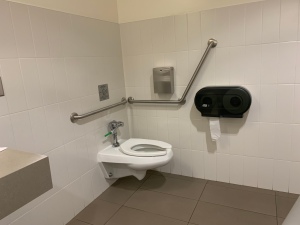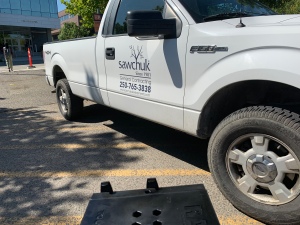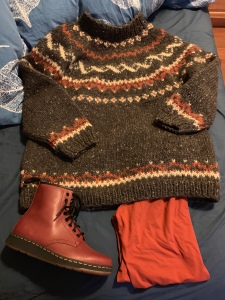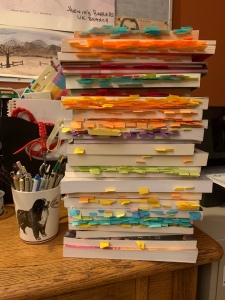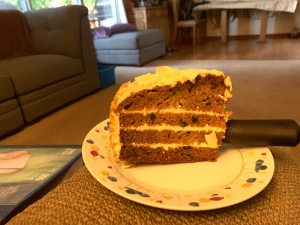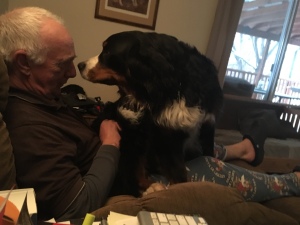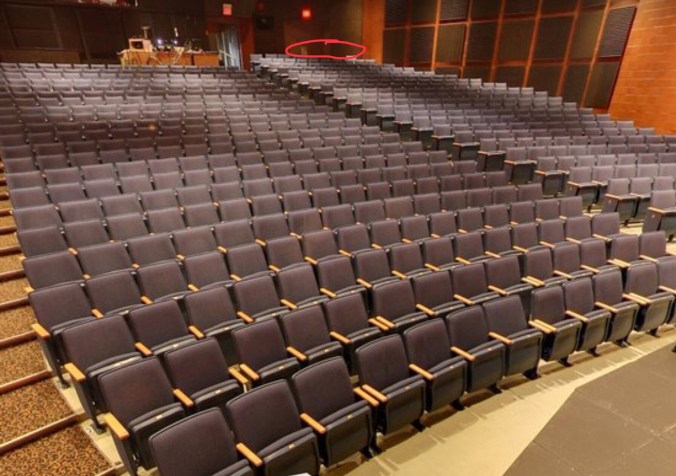Hi there! Missed me? It’s only been 2 months! It seems that life can get busy being a student, when work and life starts to build up.
I’ve thought about a few posts I could have written. I could have told you about the time I was refused entry to the bus because it was “full” but 4 non–disabled were then allowed on. I could have told you about how very very tired I have been, and how this has led to the development of what I call “innocent bitch face” to deal with situations that I have no patience for – “oh – is that really what you meant to say? Because I think that that means that…” but in the end I just decided to show you some strategies I have learnt for working while disabled. WWD.
The cornerstone of studying is reading stuff. Beyond reading the stuff, you often need to take notes, scribble on things, highlight them. I have what is commonly known (to me and anyone who asks me, so no, not that common) as T Rex Syndrome. My arms don’t stretch out very far. However, with the right tools, I am UNSTOPPABLE. It says so on my water bottle holder.
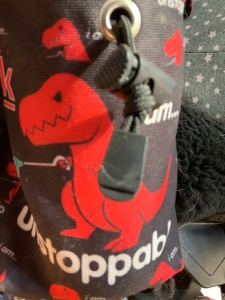
As you know, I bought a white board. So far, I have planned a presentation on it and done math on it with my granddaughter. It’s very useful for when T Rex is not around…
Juggling binders, keyboard, iPad, highlights, while pressure on my legs triggers pains, isn’t my strength. So, I decide to use speech to text. I open a word document on my phone and start talking, in 30 second increments. It’s been… interesting. I have found it needs a very careful proof reading. While “hermeneutical” was no problem for it to understand, words as simple as ways becomes waist, waste, Waze, for example. And there are many odd sentences it seems to write for itself. I find I have to proof read it close to the time of speaking, because otherwise I have no clue what it thought I said.
Moving on from sitting in my chair, with a binder of the print copy of the journal, I found that my fatigue forced me to do be paperless. I found myself dictating assignments, in bed, in the dark, lying flat but on my side, reading from my iPad but speaking to my phone. It felt really odd at first, but it can’t be that odd as my dogs ignored me. Take from that what you will.
The weekly journal assignments were meant to be roughly 300 words an entry, roughly 1000 words a week. And, in the first weeks, juggling everything on my lap, they were pretty much that size. With no such physical restriction, I found I could talk and talk! (Shocking, yes, I know). But the quality was better, not just the quantity. That’s my excuse.
From there, I went on to planning my final essay. Again, juggling multiple articles, multiple books, quotes, just wasn’t going to work. I hatched a master plan, a plan that has had a few hiccups along the way.
After reading the articles that I wanted to use, I simply took photos of the passages that either contained a theme I wanted to write about, or a quote that I might want to use. Every article was numbered, every photo contained the number of the article it comes from. So far so good.

Then, I dumped the photos into Word in three lots, to keep it manageable. One of the documents was 68 pages long. Not acceptable. I must save the polar bears. Or the trees. Whichever it is. I resized photos to the limit of my ability to read them, and printed the pages out. Also so far so good.
I cut the pages into separate photos, and sorted them into broad themes. I did all this at the table, but it was very tiring. T Rex came visiting very quickly.
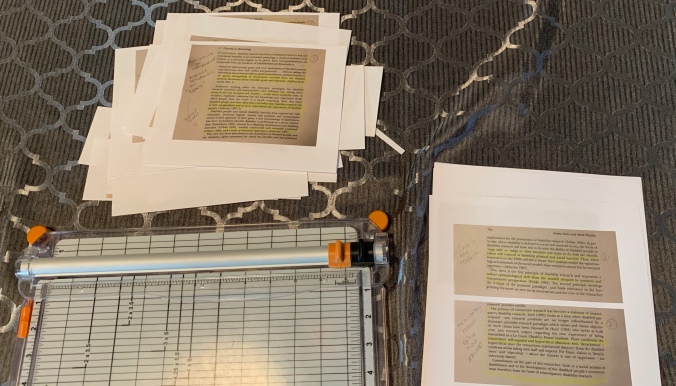
To be clear, this isn’t all one day. This is over many days, and included conversations with my instructor, who told me that the essay I had planned was too big, so I chose one of my broad themes to go forward with. I need to sort out the broad theme into the smaller sub themes.
And this is where, dear Reader, things start to go astray.
It’s the end of term. I’m very very tired. My main MS drug has worn off, but I’ve had to put off my infusion until after I write this essay as it knocks me out for a week. Such is the life of a disabled researcher. I felt too tired to sit at the table and do the next layer of sorting. I had to do it in my recliner.
First step was to give the dogs new bones as I knew that that would keep them busy all evening.
Second step was to start sorting the slips of paper into separate themes all up and down my body as I was reclined. It was definitely going well, even though I was running out of space.
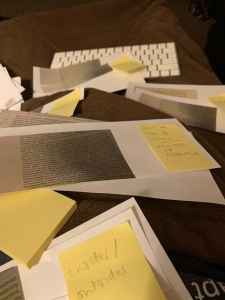
Then, disaster struck, in the form of 110lbs of fur and determination. Deefer decided he needed to eat his bone sat on my lap.
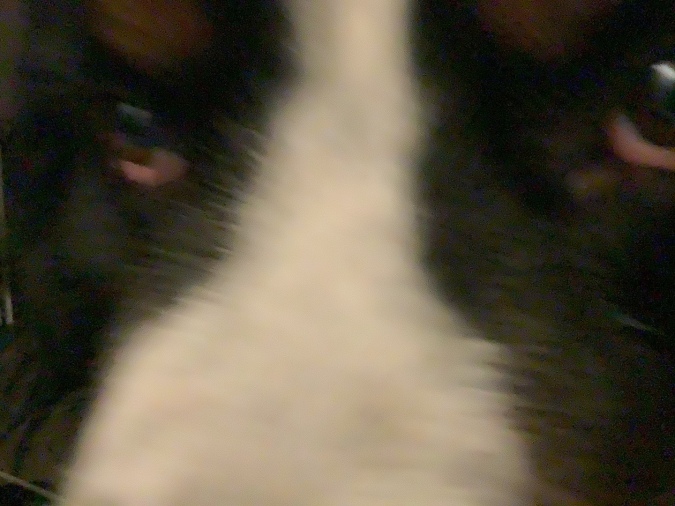
Yes, I managed to take this photo while he was on his way on to my lap, while rescuing slips of paper. He ended up sat on my iPad and my phone, but, hey, he was happy. That’s what’s important, isn’t it?!? Isn’t it?!?
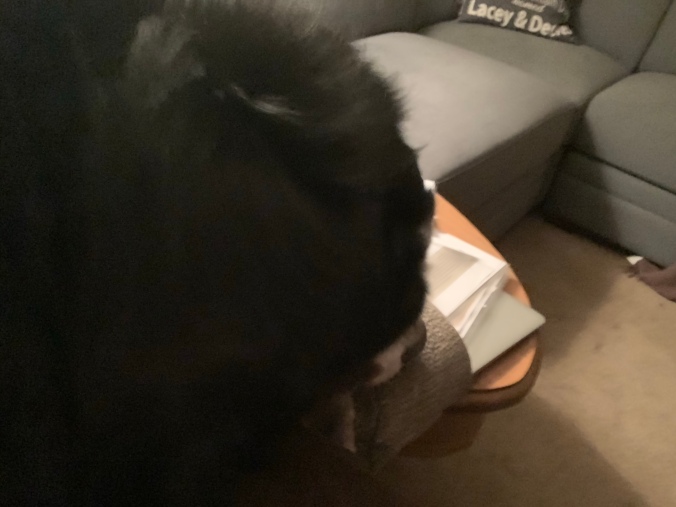
I put the rescued papers to one side, and found a great use for the books – stopping Lacey’s tail from inflicting more damage. And I gave up for the night.
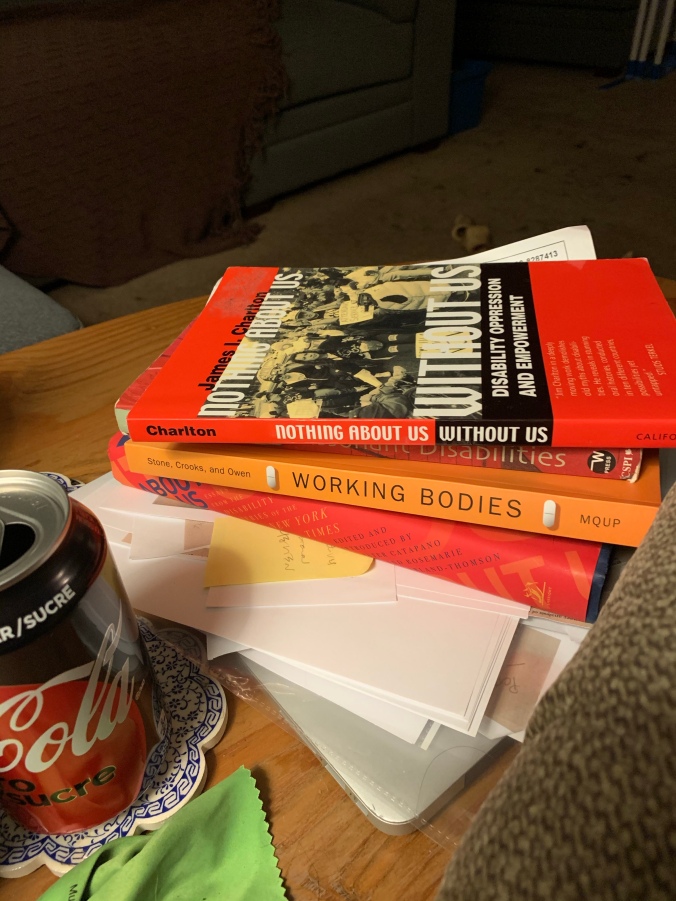
This morning I went back to the table. The quotes were in reasonable shape, and it didn’t take long to get them all sorted.
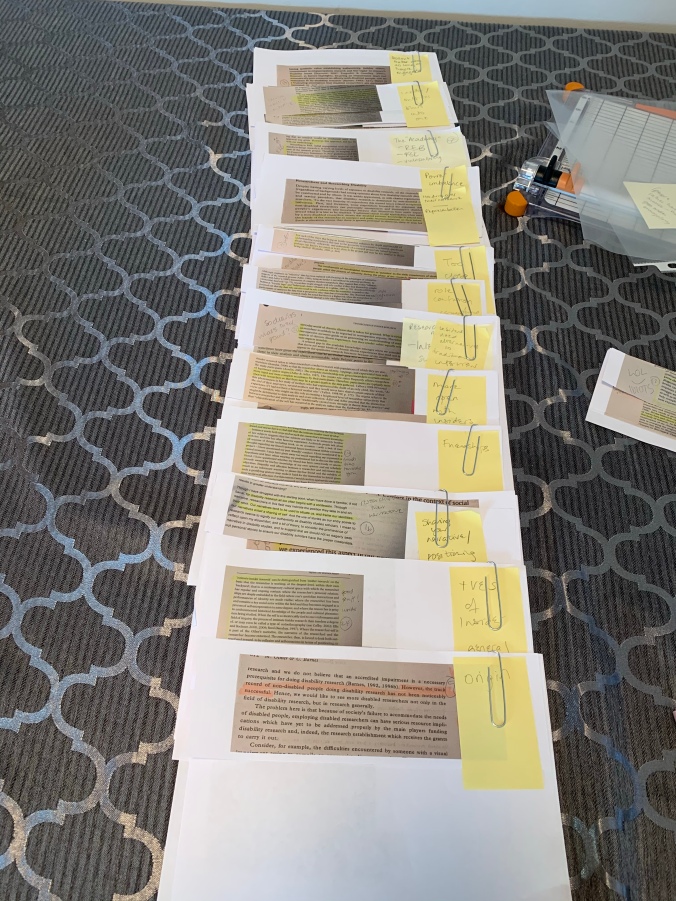
Now, who would like to actually write the essay for me? I’ve done all the hard work, honest!!!
